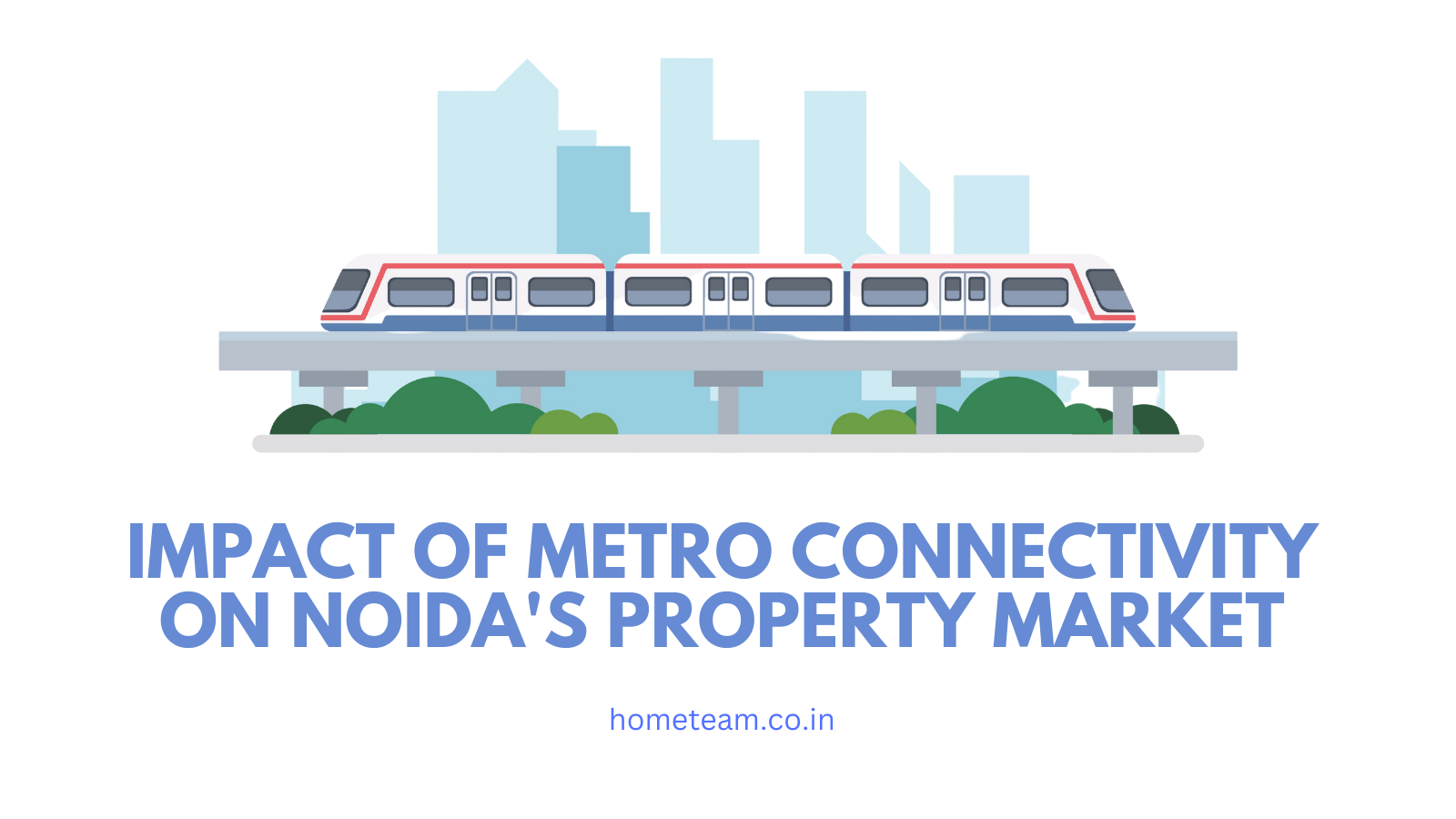The Impact of Metro Connectivity on Noida's Property Market
Metro connectivity is one of the most important factors that influence the real estate market of any city. It provides residents with a convenient and affordable way to commute to work, school, and other important places. This makes areas with good metro connectivity more desirable to live in, which leads to an increase in property prices.
Noida is a city in the Indian state of Uttar Pradesh that is part of the National Capital Region (NCR). It is a major hub for IT and ITES companies, and is also home to a number of educational institutions and other businesses. The city has a well-developed metro network, which connects it to Delhi and other parts of the NCR.
The impact of metro connectivity on Noida's property market has been significant. In the areas that are well-connected by metro, property prices have increased by 10-20% in recent years. This is because metro connectivity has made these areas more desirable to live in, as residents can easily commute to work, school, and other important places.
The metro has also had a positive impact on the demand for commercial properties in Noida. Many businesses are now looking to relocate to areas that are well-connected by metro, as this makes it easier for their employees to commute. This has led to an increase in the demand for office space and other commercial properties in Noida.
In addition to increasing property prices and demand, metro connectivity has also led to the development of new real estate projects in Noida. Many developers are now launching new projects in areas that are well-connected by metro. This is because they know that there is a high demand for properties in these areas.
The impact of metro connectivity on Noida's property market is expected to continue in the future. As the metro network expands, more and more areas of Noida will become well-connected. This will lead to an increase in property prices and demand in these areas.
Here are some of the specific ways in which metro connectivity has impacted Noida's property market:
- ● Increased property prices: As mentioned above, property prices in areas that are well-connected by metro have increased by 10-20% in recent years. This is because metro connectivity makes these areas more desirable to live in, as residents can easily commute to work, school, and other important places.
- ● Increased demand: Metro connectivity has also led to an increase in the demand for properties in Noida. This is because metro connectivity has made the city more accessible to people from Delhi and other parts of the NCR.
- ● Development of new real estate projects: Many developers are now launching new projects in areas that are well-connected by metro. This is because they know that there is a high demand for properties in these areas.
- ● Improved quality of life: Metro connectivity has also improved the quality of life for residents of Noida. This is because it has made it easier for them to travel around the city and to Delhi and other parts of the NCR.
Overall, the impact of metro connectivity on Noida's property market has been significant. It has led to an increase in property prices, demand, and the development of new real estate projects. It has also improved the quality of life for residents of Noida.
Here are some of the areas in Noida that have benefited the most from metro connectivity:
- ● Sector 18
- ● Sector 62
- ● Sector 137
- ● Sector 143
- ● Sector 148
- ● Sector 153
- ● Greater Noida West
These areas have seen a significant increase in property prices and demand in recent years. They are also home to a number of new real estate projects.
If you are considering buying a property in Noida, it is important to consider the impact of metro connectivity. Areas that are well-connected by metro are likely to see higher property prices and demand in the future. They are also likely to be more desirable places to live in.
In addition to the above, here are some other long-term impacts of metro connectivity on Noida's property market:
- ● Increased investment opportunities: Metro connectivity has made Noida more attractive to investors, as it has increased the potential for capital appreciation and rental income. This is likely to lead to an increase in investment in the city's property market in the future.
- ● Improved infrastructure and amenities: Metro connectivity has also led to an improvement in infrastructure and amenities in Noida. This is because the government and private developers are investing more in areas that are well-connected by metro. This is likely to make Noida a more livable and attractive city, which will further boost the demand for commercial property in Noida.
- ● Increased job opportunities: Metro connectivity has made Noida more accessible to people from Delhi and other parts of the NCR. This is likely to lead to an increase in job opportunities in Noida, as businesses will be able to tap into a larger pool of talent. This will further boost the demand for housing in Noida.
- ● Improved social and economic development: Metro connectivity is expected to lead to improved social and economic development in Noida. This is because it will make it easier for people to access jobs, education, healthcare, and other essential services. It will also make it easier for businesses to operate and grow. This is likely to lead to an overall improvement in the quality of life in Noida, which will further boost the demand for property.
- ● Sustainable development: Metro connectivity is a sustainable mode of transportation. It reduces air pollution and traffic congestion, and it also helps to reduce greenhouse gas emissions. This makes Noida a more attractive place to live and work. It also makes the city more attractive to investors, as they are increasingly looking to invest in sustainable projects.
Overall, the long-term impact of metro connectivity on Noida's property market is expected to be positive. It is likely to lead to an increase in property prices, demand, investment, job opportunities, and social and economic development. It is also likely to make Noida a more sustainable city.
Here are some specific examples of how metro connectivity has impacted the property market in other cities:
- ● In Delhi, the construction of the metro led to a significant increase in property prices in areas that were well-connected. For example, property prices in Sector 18, Noida, increased by over 200% after the metro was inaugurated in 2009.
- ● In Bangalore, the construction of the metro has led to the development of new real estate projects in areas that are well-connected. For example, the Outer Ring Road (ORR) area in Bangalore has seen a significant increase in the development of new residential and commercial projects in recent years.
- ● In Mumbai, the construction of the metro has helped to improve the connectivity of the city's suburbs. This has led to an increase in the demand for housing in these areas. For example, property prices in Thane, a suburb of Mumbai, have increased by over 100% in recent years.
These examples show that metro connectivity can have a significant positive impact on the property market of a city. It can lead to an increase in property prices, demand, and investment. It can also lead to the development of new real estate projects and the improvement of infrastructure and amenities.
Overall, the impact of metro connectivity on Noida's property market has been positive. It has led to an increase in property prices, demand, and the development of new real estate projects. It has also improved the quality of life for residents of Noida.
At HomeTeam, we understand the importance of metro connectivity for our clients. We offer a wide range of properties in areas that are well-connected by metro. We also offer our clients a variety of services to help them buy or sell a property. If you are looking to buy or sell a property in Noida, contact HomeTeam today. We will help you find the perfect property for your needs.










